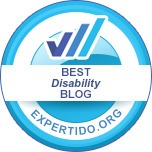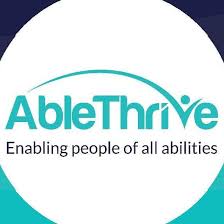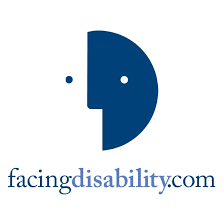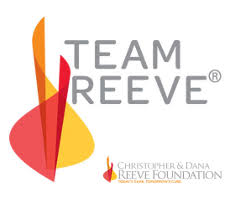|
Back home in Ohio, I returned to my job on the Alzheimers unit at the Shawhan.
I tried to engage the residents to brighten the moment, the hour, the day. In Lorain on a weekend, John and I sang happy birthday to his sister, Jean, one of the last songs she’d sing when her Alzheimers progressed. Another day, Maria called me on the way to the emergency room at Mt. Auburn Hospital in Cambridge, Massachusetts. Beth, suddenly sick with strong nausea, headache, and fever, had asked her sister to take her to the hospital. I worried about sepsis. The leading causes of death for people with quadriplegia were pneumonia, septicemia (blood poisoning caused by sepsis), and suicide. The emergency room staff identified an infection and waited for other test results. After a few miserable hours, Maria lost her patience with the staff. An ambulance carried Beth to a Boston hospital, while Maria followed in her car. An attentive doctor understood quadriplegia. He ran more tests. By morning, Beth’s fever dropped, and he ruled out peritonitis and sepsis. The doctor released her with strong antibiotics and instructions to return to the hospital if anything worsened. I was already on Rt. 90 in Pennsylvania en route to Cambridge. Beth’s severe symptoms lessened by the time I arrived. I brought her chicken soup from Au Bon Pain and helped as much as I could for a few days. I encouraged her to slow down, though she quickly returned to her full schedule. Big changes approached. At home in Tiffin, I divided a lifetime of photographs into four piles, one for each of our kids and one for John and me. I threw away old albums and put the photographs in labeled boxes of memories. Our ordinary lives had detoured to less traveled roads—with more on the horizon.
4 Comments
Back at Harvard for the start of Beth’s junior year, I carried her chair and other items up from the basement storage room. I set up her dorm room before I drove back to Tiffin. She changed her concentration from biology to health care policy with the goal of attending law school. Beth told a reporter about her DC summer and why she changed her major.
“I really fell in love with the policy side of things. After the internship, there was an opening in Senator Kerry’s Boston office to work specifically on disability issues with one of his staffers. They invited me to do that. So, throughout my entire school year I worked in his Boston office. It’s completely different, because it’s much more focused on his constituents. But I really loved that, because you get to talk to people on an individual basis.” Beth rode the T by herself from Harvard Square to the Senator’s office near the Massachusetts State House. One day a week, sometimes two. She stayed on the subway and passed the T stop closest to the Senator’s office to avoid a steep hill. She planned for extra time to wheel the additional distance back to the office, avoiding the inaccessible T stops. She signed up for text alerts to get advance notice when elevators broke down. “When I answered phone calls, I recognized a desperation in their voices as they reached out to their Senator, who was all too often their last hope in solving their issues,” Beth said. “It was rewarding to resolve specific disability-related complaints, but some we could not help.” She stayed in touch with Mary in the DC office and joined the Senator and staff for events, including a campaign rally at Boston’s Faneuil Hall for Deval Patrick, soon-to-be Governor of Massachusetts. Coffee, Beth’s new habit, stoked long days of classes and homework, swim practice and meets, plus volunteering for KSNAP and Senator Kerry. Beth’s new major allowed her to create and follow an individualized program. She selected classes relating to health care, a wide field of study including economics, regulations, inequalities, public opinion, politics, quality control, and buzzwords like adverse selection and moral hazard. She looked forward to classes at two graduate schools. “I explored health care policy and disability issues with courses at Harvard’s Kennedy School and Law School.” They were her favorite classes. Next: A Big Decision! As Beth wheeled forward, she paid attention to opportunities, many of them fortunate accidents of one kind or another. Through NYLN, she applied for a Congressional Intern Grant through the American Association of People with Disabilities (AAPD) and the Mitsubishi Electric America Foundation. The grant covered summer housing in Washington, DC, avoiding a huge expense. Next, she submitted intern applications to congressional offices.
“I was accepted into Senator John Kerry’s office first, so I jumped on that,” Beth said. “I was so excited because I respect him.” As summer began, I shopped with her for dress clothes and a professional-looking bag for the back of her wheelchair. I helped Beth move into an accessible dorm at George Washington University. The AAPD interns shared dorm suites on the same floor. Beth toured museums and monuments with her two roommates. She connected with the other interns as well as the hustle of big city life. “It was a life-changing experience. The disability community is so active in DC.” The Metro subway, newer than Boston’s T, carried Beth to Capitol Hill every weekday. She reluctantly conceded to the occasional push from strangers as she wheeled up the hill from the subway to the Capitol, especially on wet sidewalks. She worked on disability and health care issues at a desk right next to the Senator’s friendly office manager Mary. "We had installed handicapped door openers and Beth never used them," Mary said. "She has an unbelievable attitude and is sweet as can be. Nothing will stop her.” It also was Beth’s fifth swimming summer: still training year round on the US Paralympic National Swim Team and with the Harvard Women’s Swimming and Diving team through the fall/winter seasons. Beth frequented a crowded YMCA pool in DC after work. One evening on the way back to the GW dorm in pouring rain, she bypassed the subway elevator she needed because of a too-friendly homeless man. Beth wheeled several more blocks in the storm to the next Metro stop. Next: A BIG Ask! (This blog tells my family's story. To see more, click "blog" at the top of this webpage.)
The autumn months turned into a strange and lonely time for me. Every morning, I woke up early in a cramped apartment and made oatmeal. I hiked the half hour to my personal care assistant job, rain or shine. I memorized the routine and my role in it. I tried to avoid impatient reminders from the upperclass student if I paused too long. After my morning job, I had about four hours free. Anything Beth needed as she started her freshman year of college was my priority. I helped her pick up medical supplies in the mailroom. I took her wheelchair to get the bearings replaced, while she used an old back-up chair. I bought snacks for her or groceries for me, or carried my dirty clothes to a laundromat. (She still wouldn't let me do her laundry.) I usually stayed in Harvard Square in-between my jobs. I drank tea, read, and wrote, alone with a constant tension headache. Nothing made it completely go away, but many things aggravated it. My goal was to keep it at a lower level and avoid pain spikes. At 2 pm, I started second shift at the Harvard Coop. The crowds in the textbook department thinned out as the semester progressed, so my hours dropped to seven a day, five days a week. I stocked shelves and sent emails about ordered books. One evening, I recognized Wallace Shawn who played Vizzini in the classic, The Princess Bride. The movie had played more than a few times during popcorn parties at our home in Ohio. I also chatted with actress Sharon Stone. Coop employees often talked about frequent celebrity sightings. During my break, I sat outside in nice weather to eat my peanut butter sandwich, people watching and listening to talented street musicians. I eavesdropped on tourist conversations and made a game out of guessing the languages they spoke. This carried over to my work hours at the Coop, where I sometimes asked customers where they were from. At 9 p.m., I joined the line waiting to punch out before I trekked past Beth’s dorm to my apartment, a half an hour walk. I called John, Ben, Maria, Beth, or my parents on my walk home. I carried pepper spray and a whistle. Alone on dark Cambridge streets, I felt surprisingly safe with plenty of people all around. Each night, I poured a bowl of cereal or heated up a can of soup before showering and sleeping, with the notable exception of Friday evenings. To usher in the weekend, I stopped at CVS after work to buy a pint of Ben and Jerry's frozen yogurt, either half-baked or cherry garcia. A difficult decision. I always had good intentions of not eating it all at once. ;-) Next: A Big City Scam! (This blog tells my family's story. To see more, click "blog" at the top of this webpage.)
Beth’s first semester of Harvard classes required more reading than was humanly possible for anyone needing sleep. She wanted to read every word, an insurmountable challenge. Like some of the other freshmen, she had doubts that she belonged at Harvard. College swamped her and she needed extra time to take care of herself. By herself. Swim training also required extended blocks of time. Beth called the shuttle operator to schedule rides to and from Blodgett pool, located south of the main campus over the Charles River. She wheeled a long stretch across Harvard Yard from her dorm to get to the shuttle, which dropped her off in the street above the pool. She learned to weave back and forth down the hill to the entrance to cut her speed and maintain control. Getting back up the hill? Always a slow challenge. On lucky days, another student going the same way would give her a boost. As fall began, Beth practiced once a week with the Harvard Women's Swimming and Diving team as team manager, plus a supervised practice another day with the assistant coach. With the addition of more pool time on her own with workouts from Peggy. At first, she compromised with three practices a week instead of her goal of five, to free time for homework. The swimmers on the team made Beth feel welcome. At one practice, the coach asked her strong college swimmers to complete laps without using their legs. Surprisingly difficult for even one lap. And harder still, using fists instead of open hands that could cup the water. With gradually increasing upper body strength, Beth swam hour and a half practices with modified drills and breaks at the walls. She thought of the frequent muscle soreness in her arms and shoulders as a reward for a good workout the day before. Next: What’s the main reason to swim on a college team? (This blog tells my family's story. To see more, click "blog" at the top of this webpage.)
News quickly spread during freshmen orientation about Thefacebook, a website initiated only months before for Harvard students. Beth joined her peers to ride the first wave of social networking in 2004. Orientation wrapped up with tradition. Freshmen watched the last movie filmed on the Harvard campus in 1970, Love Story, with added audience participation. Freshmen dined together in a stunning wood cathedral with stained glass windows. The chamber resembled the dining hall in the Harry Potter movies. The main entrance had many steps, so Beth wheeled the extra distance to the back entrance of Annenberg Hall to the elevator. She set a tray on her lap and could reach most of what she wanted. The friendly ladies who worked there offered to assist. Beth rarely asked for or accepted help. The 1,500 freshmen met new friends at meals, though entering alone and deciding where to sit could be intimidating. Beth preferred to snack in her room until Rakhi encouraged her to go to Annenberg more often. When they dined there together, Rakhi made sure they sat with other students. She decided on her own to identify herself as a freshman. A first-year student, yes, but in graduate school. I assumed I would do--should do—Beth’s laundry, especially during the challenging transition. I also felt the need to help, to make one small aspect of her days easier. She categorically refused. At home, she couldn’t get close to the washer and dryer with her wheelchair. In the dorm, she could reach the side-by-side appliances. Still, I attempted to change her mind. I could do it faster. She’d have more free time. I even offered to take her clothes to a laundromat, in case she didn’t want me to use the dorm laundry room. That wasn’t it. Next, I offered to pay for the laundry service on campus. Never happened. Instead, I explained how to sort clothes. I don’t think she was listening. Beth drew a line in the sand with laundry. However, doing it herself was never a priority until she put on her last pair of clean underwear. She bought extra underwear at the Gap in the Square to put the task off longer. She very slowly dragged a big, overstuffed mesh bag full of dirty clothes across the floor, down the hall, and into the elevator. Laundry soap and a baggie of quarters sat on her lap. Like many other college students, she learned the hard way that whites don’t stay white if you wash them in hot water with dark colors. Clean laundry came back up to her room in the same mesh bag and on her lap. Most of it found a home on an extra chair in her bedroom. A small price to pay for independence. (This blog tells my family's story. To see more, click "blog" at the top of this webpage.)
On my second day in Cambridge, I answered an ad from an upperclass student who needed a part-time personal care assistant (PCA). I decided my main job would have less responsibility than my earlier group home jobs, so I dropped off my resume at the Harvard Coop bookstore. Out of my comfort zone, I also didn’t have internet access, with no laptop or smart phone. I dropped by the Harvard Information Center in the Holyoke Center Arcade to check my email on one of their free computers. My third day, a young woman in a motorized scooter interviewed me briefly. First thing on the fourth day, I started the PCA job. I drove to a dorm at the Quadrangle (called the ‘Quad’) north of the main campus. Driving instead of walking turned out to be a terrible idea. Parking required circling streets around my destination for a long time to find an open spot. My new job involved a long, complicated morning routine. The fifth day in Cambridge, I left the car parked by my apartment. During inclement weather, the parking situation turned from stressful to impossible. For that reason, I walked almost everywhere regardless of the forecast, including the half hour each way to and from the Quad in the morning. I stopped back at the Coop employment office to remind the director about my application and management experience. The sixth day, the Harvard bookstore called for an interview, and on the seventh, I filled out employment papers. The bookstore was an historic co-op that paid rebates to students, which evolved into the official common name, The Coop. I worked full-time from 2 to 10 p.m. in textbooks. With the addition of my morning PCA job, I rarely saw my roommate and spent little time at the apartment during the day. When I did, I usually stayed in my bedroom with the door closed, reading books from the public library. I felt out of place in the dingy apartment. I saw Beth often during the first orientation week, shopping with her in the Square or dropping off things she needed. She met me at the main entrance of the dorm to let me in. From there, we took the elevator to her second floor suite. She thanked me for setting up her dorm room, but didn’t give me a dorm key. And I didn’t ask for one. 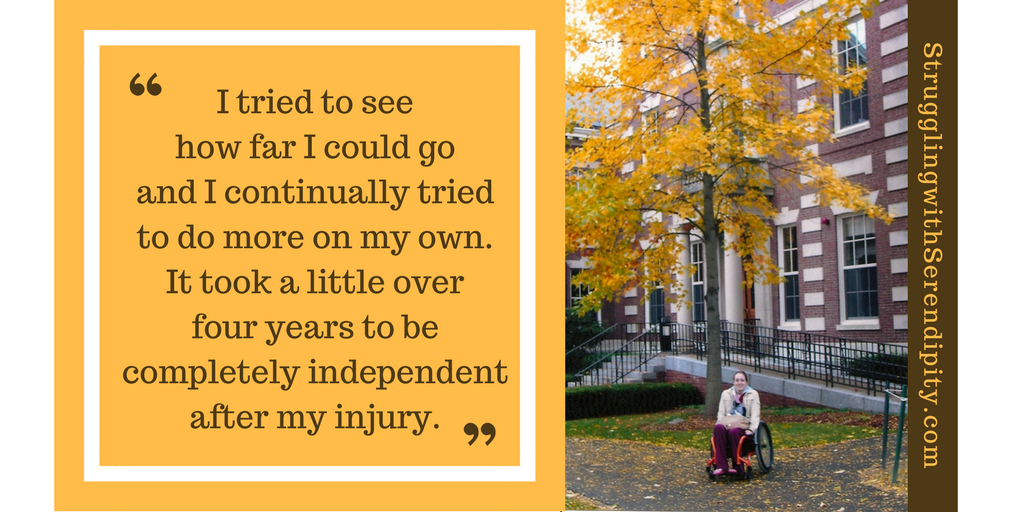 (This blog tells my family's story. To see more, click "blog" at the top of this webpage.) I carried my duffel bag up crumbling concrete steps to the dirty front door of a shabby apartment building in Cambridge, Massachusetts. My new roommate Janet greeted me with a residential parking permit for Beth’s car. Without it, parking cost a fortune. Janet led me through the entryway to a dilapidated apartment. The slanted wood floor creaked loudly as I crossed the tiny living room. Wall registers rattled and clanked. The kitchen consisted of a sliver of space with a metal shelving unit for food instead of cupboards. I placed my duffel on the worn wood floor of my small, empty, dark bedroom with no ceiling light. The cheap mattress and frame I ordered online would be delivered the next day, so Janet’s couch would be my bed the first night. A printed Google map led me to Target to buy food, bedding, and an inexpensive lamp. I missed a turn on the way back and inadvertently explored the curving streets of Somerville. My sense of direction failed me. In the dark, I searched for the few street names I recognized, or a public place to ask for directions that didn’t look too scary. When I finally arrived back at Janet’s, I put oatmeal, cereal, soup, peanut butter, whole wheat bread, bananas, and apples on the top metal shelf in the kitchen. The fridge door held my yogurt and milk. That night, I tossed and turned on Janet’s couch until the sun rose. The morning after move-in day, our second day in Cambridge, I carried Target bags with Cheez-its and laundry soap to Beth’s dorm. A brisk twelve-minute walk away. At Harvard’s computer center, she bought her first Apple computer with the student discount. On Massachusetts Avenue, called ‘Mass Ave’ by locals, she picked out a futon chair that converted into a single mattress for the suite’s common room. Beth decided on her own to test herself and handle all aspects of personal care by herself, even after Rakhi moved in that day. Consequently, Rakhi’s job description changed from personal care assistant (PCA) to simply a wonderful friend. Independence with a mostly complete C6-7 spinal cord injury required exceptional patience and significantly more time. “I tried to see how far I could go and I continually tried to do more on my own,” Beth said. “It took a little over four years (after my injury). The doctors told me they had never seen anyone with my type of injury become completely independent.” (This blog tells my family's story. To see more, click "blog" at the top of this webpage.)
After Beth’s high school graduation, a nonstop summer swept us away. Swim training fit in-between time with friends. She wore new contact lenses, pleased when she practiced and figured out how to put them in and out on her own with uncooperative hands. In Columbus, Beth helped Coach Peggy with an adapted demonstration for Ohio Swimming coaches. From there, we drove across town to her second Youth Leadership Forum (YLF) for students with a disability. As a staff assistant instead of a delegate, Beth made it her first completely independent trip of five consecutive days. No small feat with a C6-7 spinal cord injury, even with an accessible hotel room. The day after YLF ended, she had one night at home before her flight from Cleveland to Washington, DC, for her first National Youth Leadership Network conference for youth with a disability. “It was my first independent flight,” Beth said. “I’m not sure why, probably just something new and being nervous, but I got teary when Mom left me at security.” On the jetbridge, Beth instructed staff on how to lift her to the narrow aisle chair. They waited while she broke her leg spasms on her own. She helped with the seatbelts and held her arms tucked in as they pushed her down the aisle of the plane to her seat. They stowed her wheelchair underneath with the luggage, minus the cushion and sideguards. When the plane landed, she waited until the rest of the passengers left, reclaimed her wheelchair, and met her contact in baggage claim. A van with a lift waited to take her to the conference. I breathed easier after her phone call from a nice hotel. I had stressed needlessly. Her experience in DC made the stress of the solo flight worthwhile. “When I represented Ohio at the national conference,” Beth said. “I came to understand that the Americans with Disabilities Act and the work of the early pioneers in disability rights was far from over.” “My generation has grown up since the ADA so it’s easy to take it for granted, because we didn’t have to fight for it. Learning from the people who did have to fight and listening to their stories was empowering.” Next: An unexpected new role on a college team! 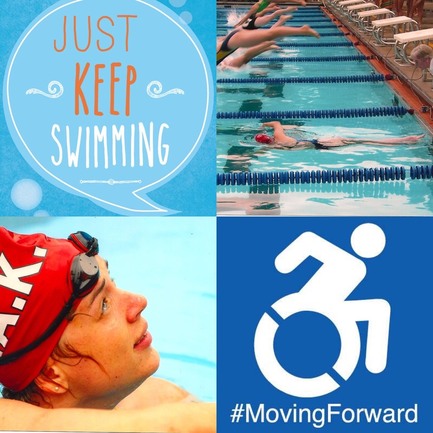 (This blog tells my family's story. To see more, click "blog" at the top of this webpage.) Beth’s wheelchair didn’t rule out anything she really wanted to do. At 17, she started a dozen college scholarship applications and competed on the quiz bowl team. She continually volunteered with different groups, including the Tiffin student athletes who visited elementary schools. A Paralympic coach asked Beth to mentor a teenager from Seattle with a new spinal cord injury. The girls exchanged emails about wheelchairs and prom dresses. At the first practice of the season for the high school swim team, I sat on the YMCA bleachers with a book in case Beth needed me. I usually put on her swim cap—after she tried to do it by herself first—and lowered her from the wheelchair to the deck. Coach Peggy competently took over the tasks. Each swimmer carried a net bag with workout gear. In Beth’s, the typical flat paddles had been cut to a smaller size to fit her hands, with the flexible tubes adjusted to hold the paddles in place. Floating aids strapped on with Velcro. She also utilized a tempo trainer, a battery-operated device the size of a watch face. It worked like a metronome from music class, clicking out the ideal pace. I couldn’t imagine a better coach than Peggy. She modified the team’s workout with creative variations to avoid too much stress on specific arm and shoulder muscles. She also supervised circle turns. Beth couldn’t flip at the wall and push off with her feet like her teammates could. To finish a lap, she approached the wall at the left side of the lane, pushed off with one hand, and completed the half circle to start another lap. “Walls are bad for me,” Beth said. The fewer walls in a race, the faster her times. High school competitions took place in short-course, 25-yard pools. A 100-yard race required three circle turns at the walls. At the end of the first high school team practice, Beth swam to a corner of the pool. With her back to the corner, she placed her hands on the low deck to lift herself out of the water to a sitting position. She tried a few times, almost making it, before being lifted out. She always needed help to get from the deck to her wheelchair and didn’t mind when the boys on the team volunteered. I caught up with her on the way to the locker room, expecting to assist. Beth decided to go it alone for the first time and declined politely. She joined the rest of the girls in the locker room. I waited impatiently in the lobby, wondering if she changed her mind. Sitting in her wheelchair, Beth lifted a knee with her wrist to raise a foot. The opposite hand guided one side of her sweatpants over the dangling foot, before shifting to do the same for the other side. With the goal of placing her feet back on the chair rest with the pants bunched up around both ankles. Eventually, she used her fists and the one finger she could control to slowly pull the sweats up and over her knees. When the pants reached her thighs, she rocked from side to side to continue the prolonged fight. Next, she scooted forward and leaned her shoulders on the back of the chair. Anchored, she lifted her bottom up a few inches to pull the sweats all the way up—inch by inch. In the meantime, the rest of her team showered, changed, and left the YMCA, I found her in the locker room with the sweatpants mostly on. Beth’s first after-swimming solution for independence? Put on baggy sweatpants over a wet suit and then leave to shower at home. Easier said than done. Next: Travel Plans! |
Cindy KolbeSign up for my Just Keep Swimming Newsletter by typing your email address in the box. Thanks!Categories
All
Archives
November 2022
|
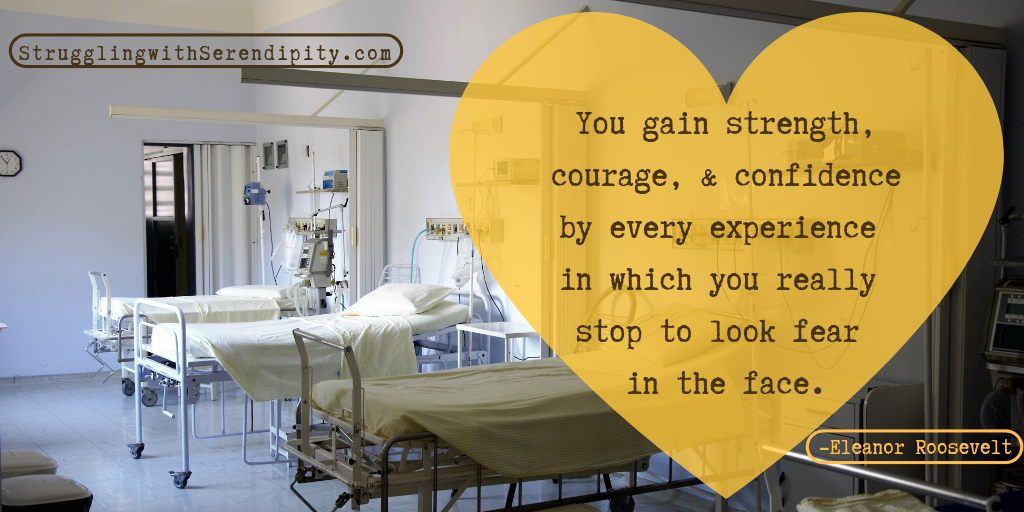

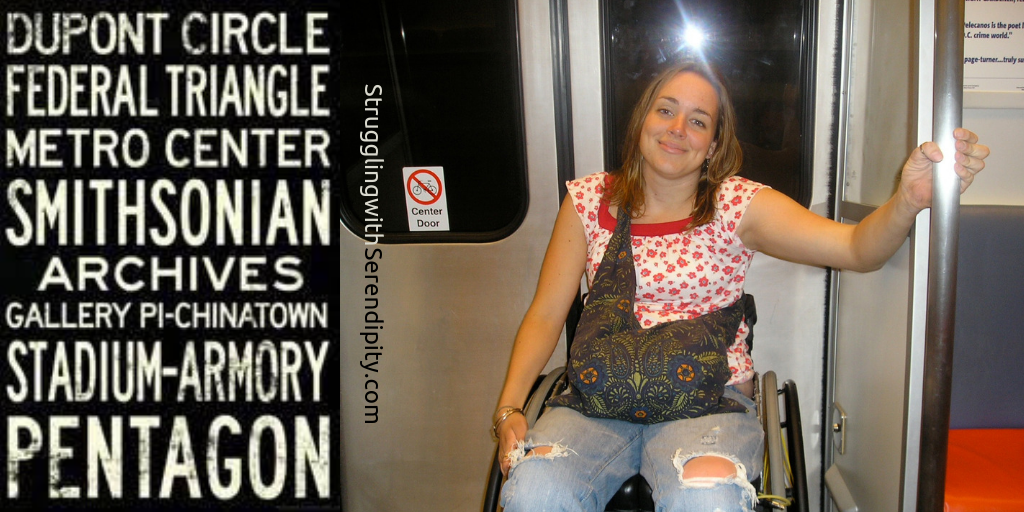






 RSS Feed
RSS Feed
